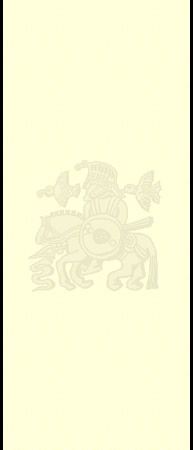



| Web site design and maintenance by Akikaze Media Services. All content of this site, unless otherwise noted, is copyright ©2001 Robert Bly. All Rights Reserved. Any duplication, in any form without the written consent of the copyright holder is prohibited. |
In The Insanity of Empire, Minnesota’s unofficial poet laureate Robert Bly warns, “The invasion of Iraq is the biggest mistake any American Administration has ever made. The most dangerous and greatest confrontation is between twentieth century capitalist fundamentalism and eleventh century Muslim fundamentalism.” As a practitioner of the ghazal form, with its roots in the Arab world, and as a longtime observer and critic of American culture and politics, Bly has more credibility than most in making such claims.
In a five-page series of “Intuitions and Ideas” that ends this book, Bly also opines that Americans watch presidential debates not to pick the best candidate, but to see “if the politicians are performing well in pretending to be someone else.” He notes that in the latest war America has started we don’t count Iraqi civil casualties, but only American bodies. He ventures that our country (any country that makes war, we can assume) is in possession of “a covetous soul”
It is this last idea that Bly returns to in the volume: “the rapacious soul,” “the loose soul,” “the insatiable soul,” “greedy fire,” “Dragonish Soul,” “someone who wants.” In doing so, he succeeds in finding the roots of our current war not only in American history, but in the failings of humankind.
And did I mention, this is a book of poetry? Despite the tone of the preceding, The Insanity of Empire, subtitled “A Book of Poems Against the War in Iraq,” is not polemic or political tract. Bly sees complexity in our current (though timeless) dilemma. He sees it in the paradox that “people will vote for what will harm them.” He sees it in the difficulty an individual faces in opposing this war and the soul unrestrained. He consoles only by telling the reader, “You will not be forgiven if you refuse to study.”
And Bly finds complexity in the ways that make good poetry. The best of the poems here leap from line to line, from thought to thought, in the way of the ghazal form, but also in the way that Bly has been championing poetry since the publication of Leaping Poetry in the sixties:
I don’t want to frighten you, but not a stitch can be taken
On your quilt unless you study. The geese will tell you—
A lot of crying goes on before the dawn comes.
A few of the poems are drawn from Bly’s sixties collection of anti-Vietnam war poetry, The Light Around the Body. I remember reading the book as an undergraduate two or three years after the suspension of the draft for that war, when it was clear that I wouldn’t have to leave the country for Canada after all. Already I had forgotten the war and the uncertainty my friends and I had faced as nineteen-year-olds. Light baffled me, seemed to shout when I wanted it to whisper or sing. In Insanity, Bly explains his cribbing from his own earlier book, “How little [has] changed since that time. We are still in blindfold, still being led by the wise of this world.”
The old poems seem to me now alarmingly relevant, as do the new. There are purposes for art other than art, and for that there can be no more timely recent book of poetry than this one.
(Richard Terrill teaches at Mankato State University. His book of poems, Coming Late to Rachmaninov, won the Minnesota Book Award for Poetry in 2004.)